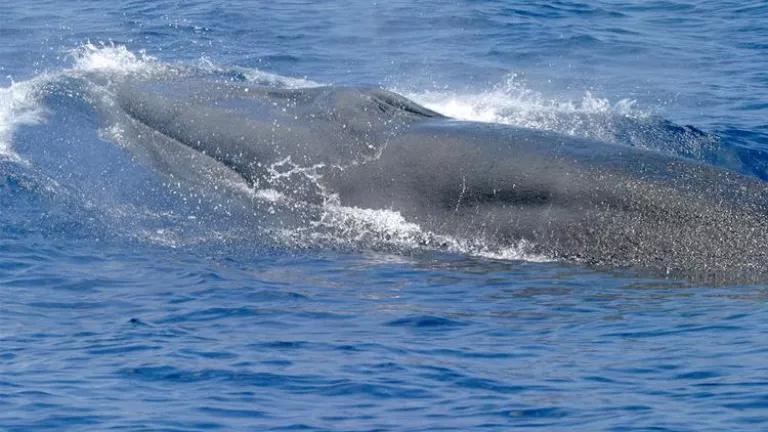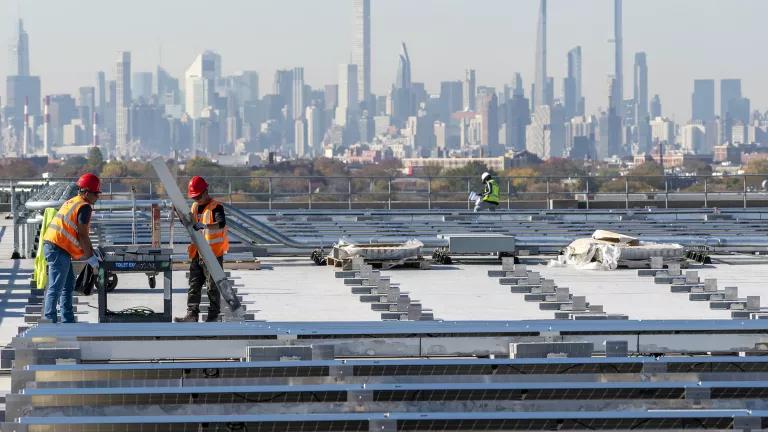Why Drill for Oil in Florida? Tiny Industry, Huge Risks.
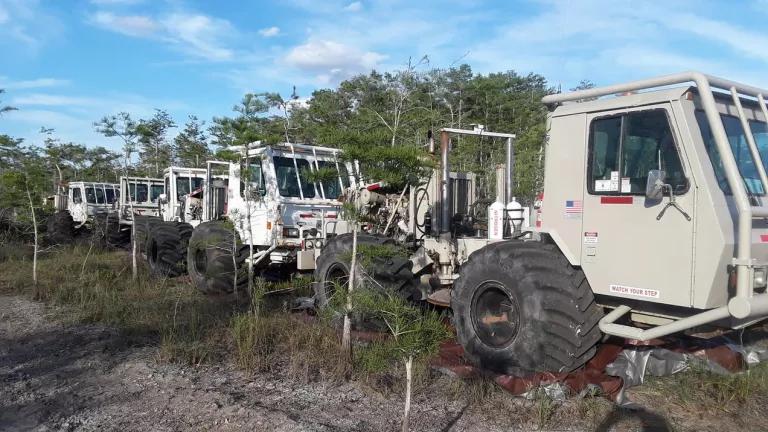
The fossil fuel industry is targeting Florida for oil development. Florida’s Big Cypress National Preserve and other sensitive lands in the Everglades, and the wildlife that thrive there, are already in jeopardy due to seismic oil exploration.
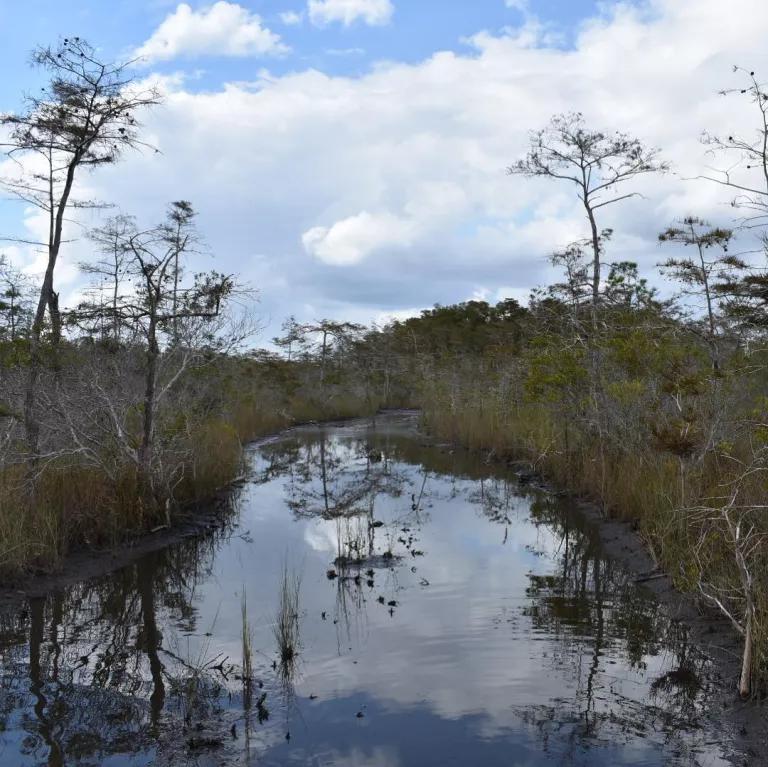
A new NRDC report finds that the costs of destroying unique and sensitive ecosystems in Florida’s Everglades significantly outweigh whatever small amounts of oil these areas could yield.
Oil represents only a tiny sliver of Florida’s economic activity. Florida produces a small fraction of the country’s crude oil and natural gas output. According to the U.S. Energy Information Administration, Florida ranks 22nd of 31 states in total crude oil production. The state contributes only a small percentage (less than 0.0006, one-sixteenth of one percent) of U.S. oil production.
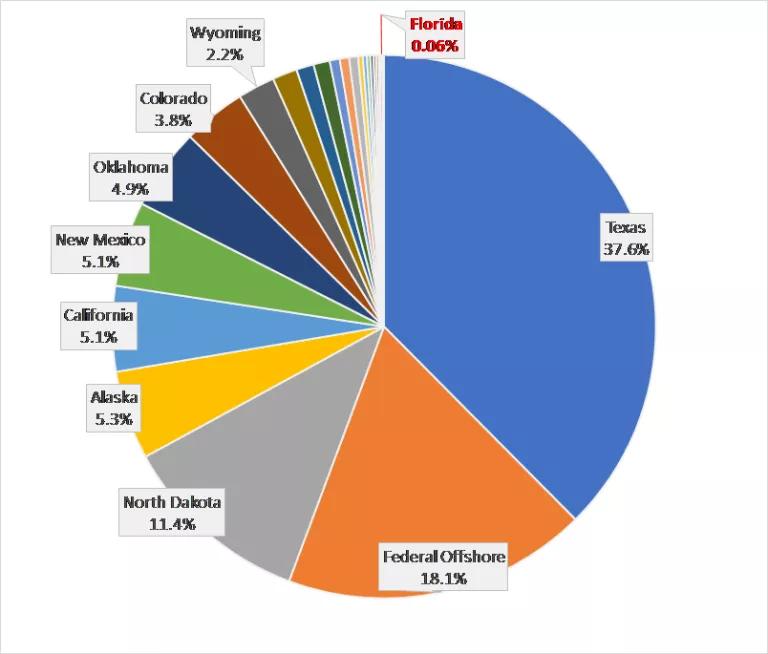
Florida has two oil producing regions—one in the Panhandle in north Florida bordering Alabama, and, another in south Florida, which spreads over the southwest Everglades, including Big Cypress National Preserve. In 2017, the Panhandle accounted for about three-quarters of the state’s modest oil output and more than 99 percent of its natural gas production. Still, private owners of oil and gas in the Everglades have sought to exploit the underlying fossil fuels.
For example, the Texas-based Burnett Oil Company began destructive seismic exploration in sensitive wetland ecosystems in Big Cypress National Preserve in its quest to find more oil. Exploratory well drilling will presumably follow.
More than one million people visited Big Cypress annually from 2013 to 2016—but the number of visitors declined by almost 20 percent in 2017, which is when new oil exploration began in the Preserve.
Mississippi-based Tocala, LLC reapplied to search for oil on a combination of private and state lands north of Big Cypress National Preserve.
Kanter Real Estate proposed an exploratory oil well in the Everglades of western Broward County. It’s unclear why the Florida Department of Environmental Protection denied Kanter’s request to drill in Broward County, but approved oil exploration in Big Cypress, which is part of the National Park system and home to the endangered Florida panther.
The fossil fuel industry’s interest in oil production in and near the Everglades threatens public lands, natural resources, wildlife and water supplies. It is also a threat to Florida tourism, a vastly larger industry than oil.
Here are more of the report’s key findings:
- Expanded onshore exploration and drilling would irreparably harm Florida’s natural resources and jeopardize tourism, the state’s leading industry;
- Oil production’s share of Florida’s gross domestic product (GDP) is insignificant compared to tourism at less than 0.2 percent;
- Wildlife viewing and fishing are economic generators – adding billions of dollars to the state economy and creating thousands of jobs;
- The fossil fuel industry promotes misleading figures on oil industry jobs – in reality, oil drilling and production employs less than a thousand of Florida’s workforce of nearly 10 million people;
- Oil is an instable industry in Florida – by contrast, tourism-related jobs are hundreds of times more numerous and reliable;
- Tourists visiting Big Cypress National Preserve in 2015 created more jobs than the entire Florida oil and gas industry currently contributes;
- Everglades restoration is a multi-billion-dollar project that could be thwarted by oil drilling – notably, Everglades restoration will create $46.5 billion in ecosystem benefits;
- Fracking could depress nearby housing prices – in Pennsylvania, fracking has resulted in losses of 9.9 to 16.5 percent for homes dependent on groundwater wells; and
- The state’s oil industry and reserves are so small that a statewide legislative ban on well stimulation techniques—such as fracking and acidizing—would pose little risk to Florida’s economy.
The report makes several recommendations, including:
- Clean energy jobs would not threaten the Everglades or other natural environments, unlike oil and gas jobs;
- Florida ranks third in the U.S. for rooftop solar potential;
- Florida has plenty of room for expansion of solar power and solar jobs in the years ahead, which could be more sustainable for Florida’s economy than oil;
- Solar power could employ many more Floridians than it does currently (8,600 people) if the state promoted renewable energy more vigorously; and
- Rooftop solar panels do not destroy the beaches, water resources, and wildlife that draw so many tourists to Florida and fuel its economy—in contrast to the significant potential harms of oil spills and fossil fuel emissions.
Jeopardizing Florida’s powerful tourism industry for oil exploration and production, this report makes clear, is not worth the risks. It would only benefit private oil and gas interests and the fossil fuel industry.
